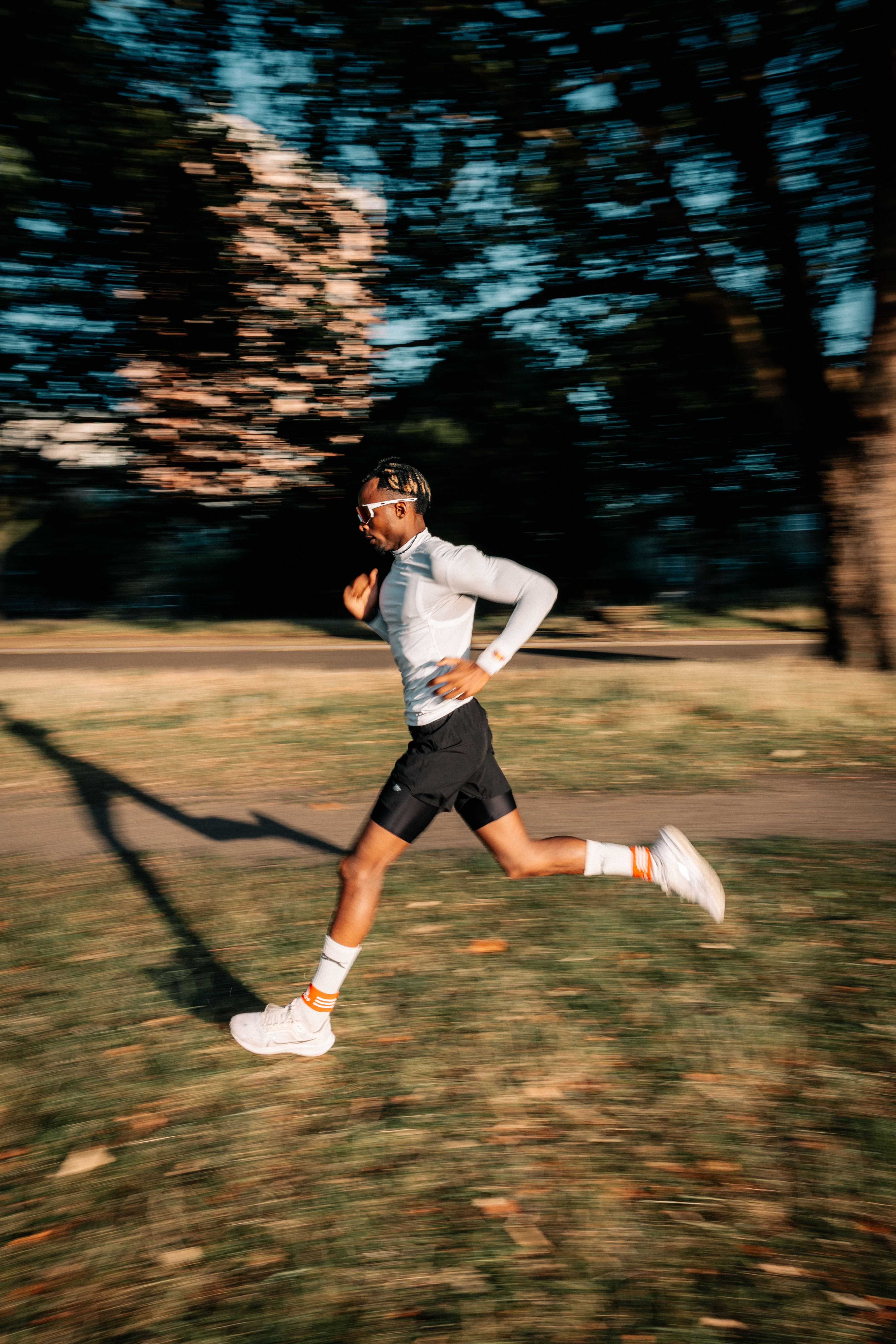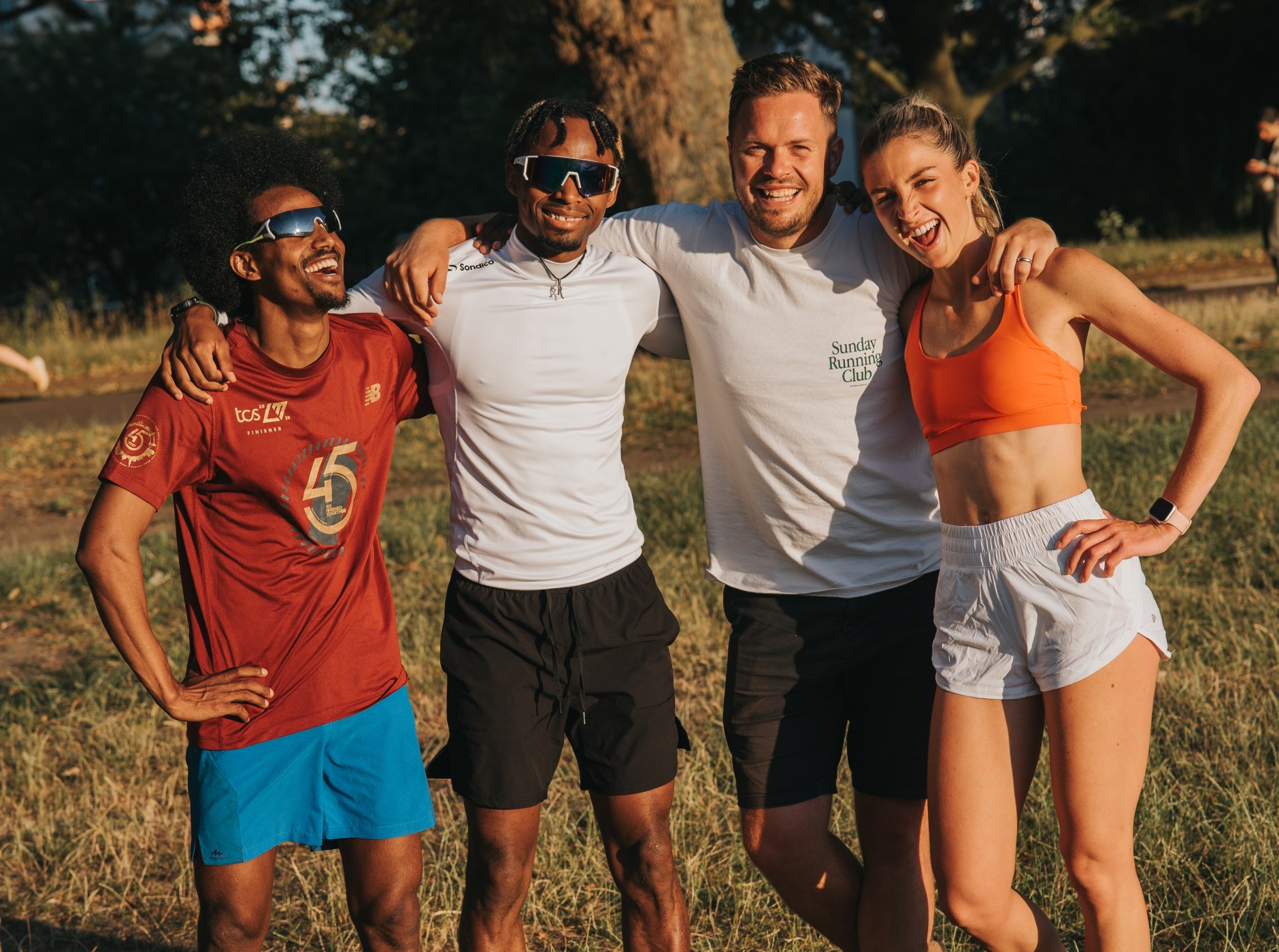In the London alone, studies estimate that there are over 250,000 refugees and asylum-seekers living in the city. Having fled from hardships of war, environmental catastrophe, political unrest and more, they move to the UK for the chance at a better life and opportunity for their families. But this is not without its challenges. Finding their sense of stability is extremely difficult with few rights to earn money and live without worry. For Pete Cooper, giving refugees a place to develop themselves and find a community came through the power of running. We chat with Pete to find out more.
Runlimited: Hey Pete! So not only are you a co-founder of the running coaching app, Coopah, but you've built the Refugee Run Club as one of London's most important mission-driven running projects. Can you give us the basics of Refugee Run Club; what do you guys do? What is the mission?
Pete Cooper: When my colleague Dan and I founded Coopah, the run coaching app, we wanted to do more than just be the best coaching app on the market. We believe running isn't accessible. The cost to access running is unaffordable for many and it's becoming even more expensive, especially with social media hype.
More importantly though, running saved my life and I wanted this impact to be given to others. Close to 100% of refugees and asylum seekers struggle with their own personal mental health, we wanted to change this. So we set up a charity alongside the business of Coopah.
The charity aims to provide refugees and asylum seekers with a safe place to run once a week, provide them with access to major events like the TCS London Marathon and kits them out so they can actually run!
RL: What was the initial motivation for starting things up?
PC: Running isn't accessible. Running isn't what lot's of people think it is. Change is needed.
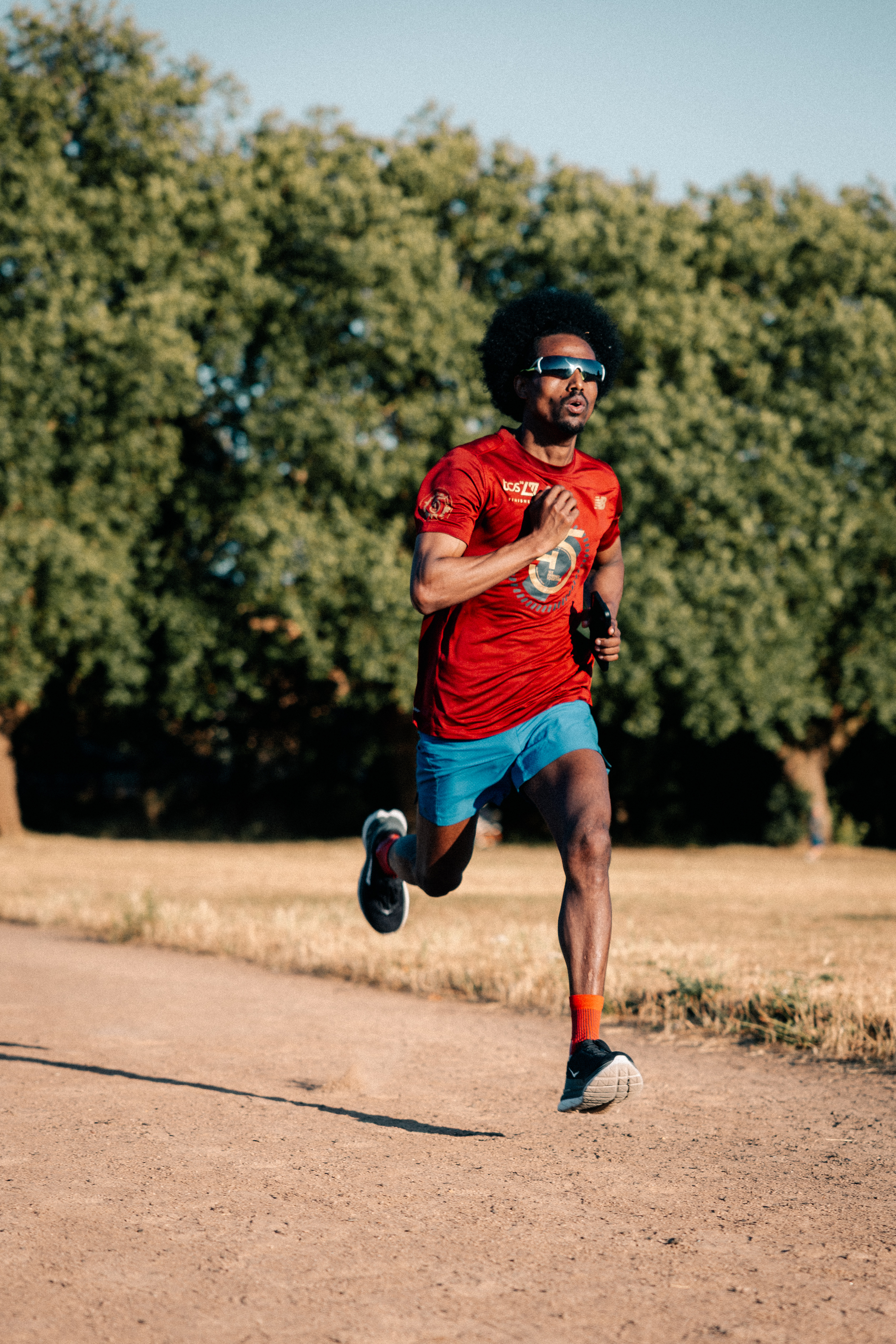
RL: What are the challenges faced by refugees in the UK?
PC: This is a question with a long list of answers but ultimately, it's the ability to pay for things. An asylum seeker is given less than £10 per week to live. They are banned from working. They are not integrated into society and they are left alone to suffer with the horrendous traumas that forced them to leave their country. Running gives them a sense of hope.
RL: How does Refugee Run Club aim to combat these challenges? What is it specifically about running that helps with this?
We create localised running communities for refugees and asylum seekers. We have seen that being part of a running community can transform refugee’s mental health:
Running gives them a passion.
Running gives them friendship.
Running gives them health.
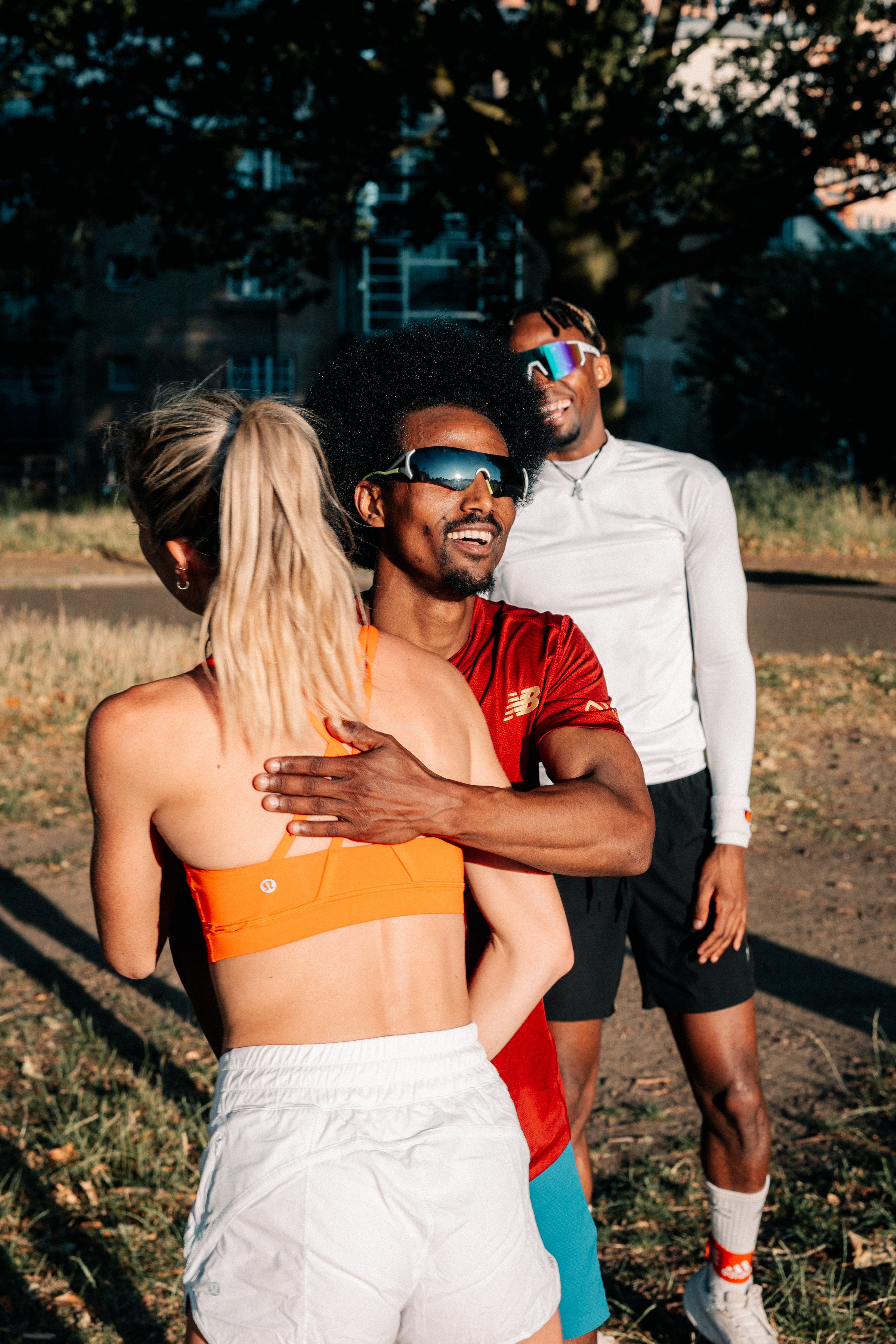
RL: Any standout 'success stories' or moments you're particularly proud of?
PC: There are so many stand out stories but starting with the need for speed first. We saw Hagos run a 2:29 marathon at London this year and place within the top 150, all whilst wearing second-hand, donated kit. Pretty epic eh! That Coopah app must work.
Other success stories include Rawand and Mario, who arrived in the UK knowing no one, were depressed and anxious to leave their room. Fast forward three years and both have their right to remain, are working, and are giving back to the RRC by setting up their own local RRC allowing other refugees and asylum seekers to learn from them and their experience. That's pretty epic isn't it?
Finally, we saw our refugees featured in an eight-page spread in Women's Running Magazine and we saw the first ever female refugee appear on the front cover on any running magazine. Cool.
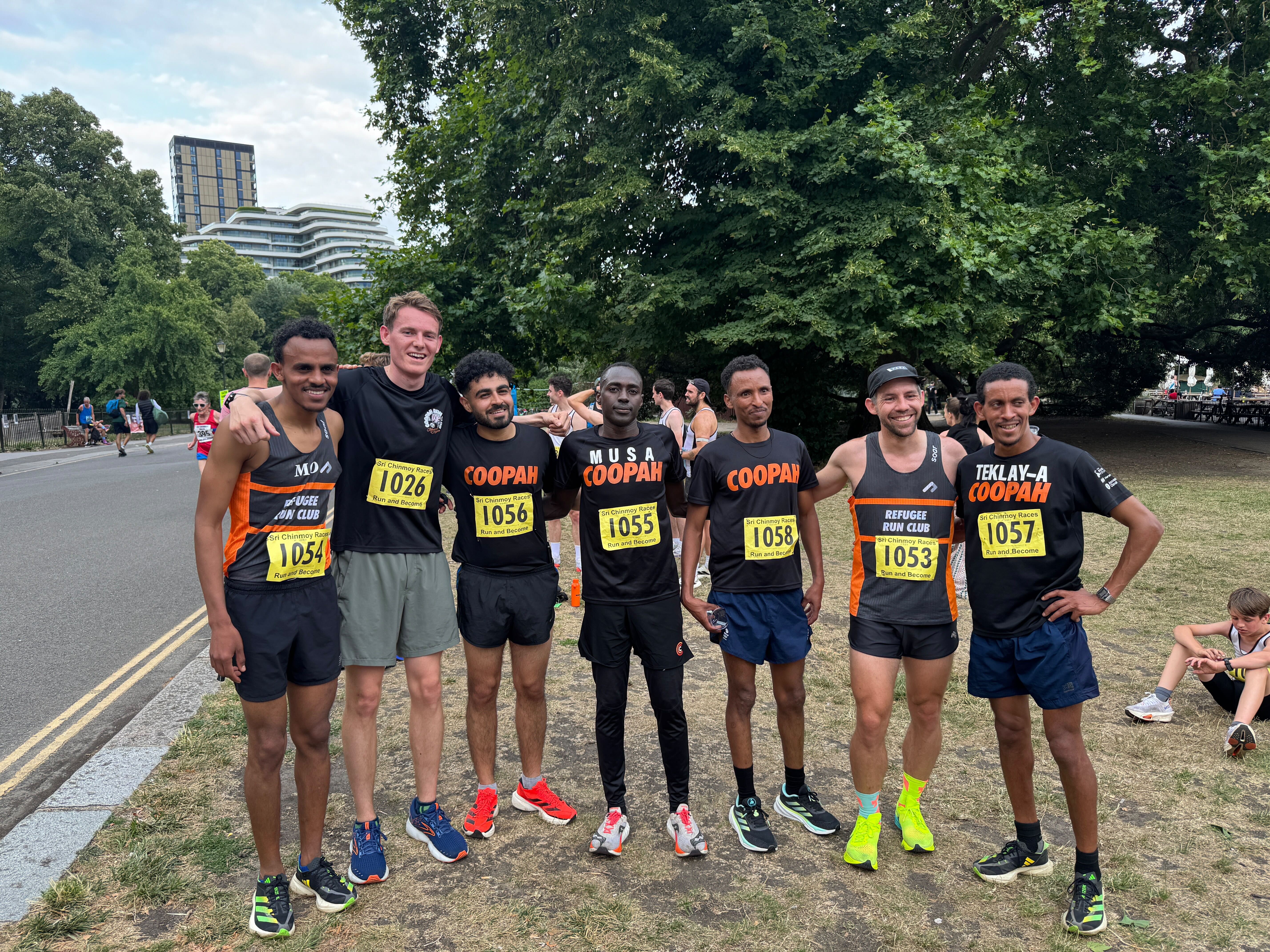
RL: What have you learned from this?
PC: Refugees and Asylum Seekers are superhumans. Everyone is human. Be kind. Treat people how you'd like to be treated. Don't moan about your kit or not getting into a race. It's much harder in other postcodes and that's life. A post code lottery.
RL: Are there ways people can get involved or help?
PC: No one at our charity takes a penny from the RRC, it's 100% voluntary. We can only do what we do via donations. So please give a little - https://www.refugeerunclub.com/donate
